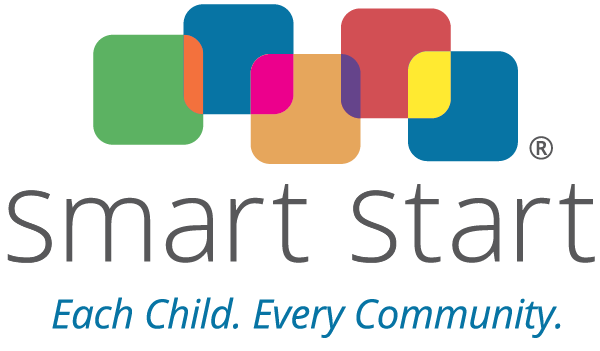Smart Start Explained
When you mention the organization Smart Start to people, the reaction is often one of familiar confusion. The name sounds familiar. It reminds us of the federally funded child care program Head Start, an organization with whom Smart Start works but whose operation is vastly different than that of Smart Start. People feel as though they have heard of it, but they cannot pinpoint what it is or what it does.
Fortunately, Smart Start has a simple genesis story followed by 26 years of accomplishments that help explain this robust, successful and nationally-acclaimed model for improving the lives of children ages birth to kindergarten, their families and their communities.
In 1993, the N.C. General Assembly created The North Carolina Partnership for Children (also known as Smart Start) as a solution to a growing problem: children were arriving to kindergarten unprepared to learn. Smart Start represents all 100 counties through 75 local partnerships for children (each a separate nonprofit organization). Considering that North Carolina is geographically and demographically immense and diverse, the power of Smart Start is it delivers outcomes by giving communities local control to determine the best approach to achieving them.
A critical component of the success of Smart Start is its commitment to partnership. The mission of Smart Start of Transylvania County (SSTC) reads: “In partnership with families, organizations and in-dividuals, we influence the well-being of children. We accept responsibility for the improvement of high-quality early care and education for young children in Transylvania County.”
Now that SSTC’s basic mission and structure has been established, the way in which it operates in order to meet its vision of “a community in which every young child in Transylvania County is thriving” can be described.
SSTC does not provide child care; it improves the quality of early care and education for young children in the following ways:
•Funds Childcare Subsidy vouchers to assist parents and caregivers with high-quality child care for their preschool children so they may work or attend school.
•Administers the NC Pre-Kindergarten Program, free for eligible 4-year-olds, that supports children’s developmental and literacy skills.
•Contributes to the professional development of early childhood educators through programs that provide wage supplements, educational scholarships and high-quality training opportunities.
•Administers and/or funds literacy programs such as the Dolly Parton Imagination Library and Reach out and Read.
•Funds a kindergarten transition program called Jump Start to Kindergarten, offered at all local public elementary schools.
Having established the tangible ways SSTC contributes to the well-being of children, the depth of its partnerships can be explored. One aspect of partnership, “working with organizations and in-dividuals, we influence the well-being of children” is an important part of the mission of the statewide network of Smart Start. The essence of this is community convening. SSTC does this through partnership with the Get Set Transylvania early child-hood collaborative, started in 2015 by bringing together community stakeholders to address the needs of children from birth to kindergarten.
Over the last three years, the task force, which now numbers 24 partners, has strengthened and enlarged support for Transylvania County’s child population in profound ways.
Additionally, Deb Tibbetts, executive director of SSTC, is engaged in regional and statewide advocacy efforts for young children.
SSTC is part of the WNC Child Advocacy Network, a network of organizations who collaborate on policy advocacy to improve access to, and quality of, early childhood care and education programming in western North Carolina counties. The network also collaborates with statewide organizations on shared policy interests while advancing western counties’ priorities in statewide settings.
SSTC is a leader in the WNC regional “Smart Start Local Partnership Advisory Committee,” comprised of the western region Smart Start partnerships. This provides an opportunity for best practice sharing, collaborative work and the ability to influence the statewide network. Additionally, SSTC repeatedly is asked to participate in statewide pilots of initiatives/ programs which inform future work. These larger regional and state efforts by SSTC and the partners of Get Set Transylvania position the county to participate in the most impactful new initiatives, furthering Transylvania County as an early childhood model across the state.
Consider joining Get Set Transylvania at its upcoming early childhood regional summit on March 21 at Brevard College for a presentation of the recently completed North Carolina Early Childhood Action Plan and a workshop spotlighting Transylvania County and Sesame Street in Communities. N.C. Dept. of Health and Human Services Secretary Dr. Mandy Cohen and the Sesame Street in Communities team will join Get Set partners. To register, visit Smart Start’s Facebook page, noted below.
SSTC is continuing to fill its board; contact Deb Tibbetts at 877-3025 if you share our passion for young children!
For more information about SSTC, visit us at www.smartstarttransylvania.org and at facebook.com/smartstarttransylvania/.
Written by: Deb Tibbetts and Rebecca Snurr and Published by: The Transylvania Times

